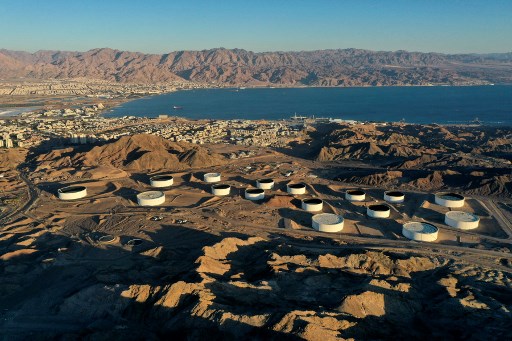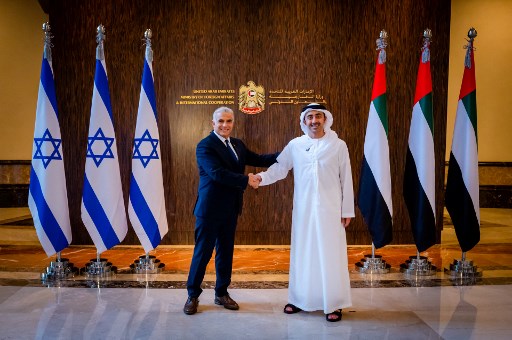
JERUSALEM, Undefined (AFP) — Israel’s environmental protection ministry said Sunday it was delaying implementation of a proposed oil transport deal with the United Arab Emirates, freezing a project that has angered environmentalists.
The agreement, which followed the UAE and Israel establishing diplomatic ties last year, would see Gulf oil brought to the Red Sea port of Eilat by tanker, than moved by pipeline through mainland Israel to the Mediterranean port of Ashkelon, from where it would be shipped to Europe.

The oil deal, involving Israel’s state-owned Europe-Asia Pipeline Company (EAPC) and an Israeli-Emirati company called MED-RED Land Bridge Ltd, has not launched.
But activists have sounded the alarm about potential threats to the northern Red Sea corals off Eilat’s coast.
Israeli environmental organisations challenged the plan in court, citing the risks of a devastating leak or spill, with tens of millions of tonnes of crude expected to be brought through Israel each year.
EAPC submitted its response in court last week, providing a risk assessment, which it claimed that the risk from the increased flow of crude was miniscule.
But on Sunday, Israel’s environmental protection ministry said the risk assessment “did not meet the conditions” stipulated by the ministry, and was therefore not valid.
The ministry told EAPC in a letter it was “delaying the evaluation of your preparations to increase activity in the Eilat port, until the government has a discussion and reaches a decision” on the project.

The decision to freeze the deal’s implementation was made by recently sworn-in Environmental Protection Minister Tamar Zandberg of the left wing Meretz party, who has been an outspoken opponent of the EAPC-Emirati agreement.
A spokesman for the government of Prime Minister Naftali Bennett, whose ideologically diverse coalition was sworn in last month, said his office had “asked the court for an extension of time, in order to respond to the petition filed by the environmental organisations.”
A spokeswoman for EAPC had no comment.
Activists argue the deal evaded tough regulatory scrutiny because of EAPC’s status as a state-owned firm working in the sensitive energy sector.
© Agence France-Presse








